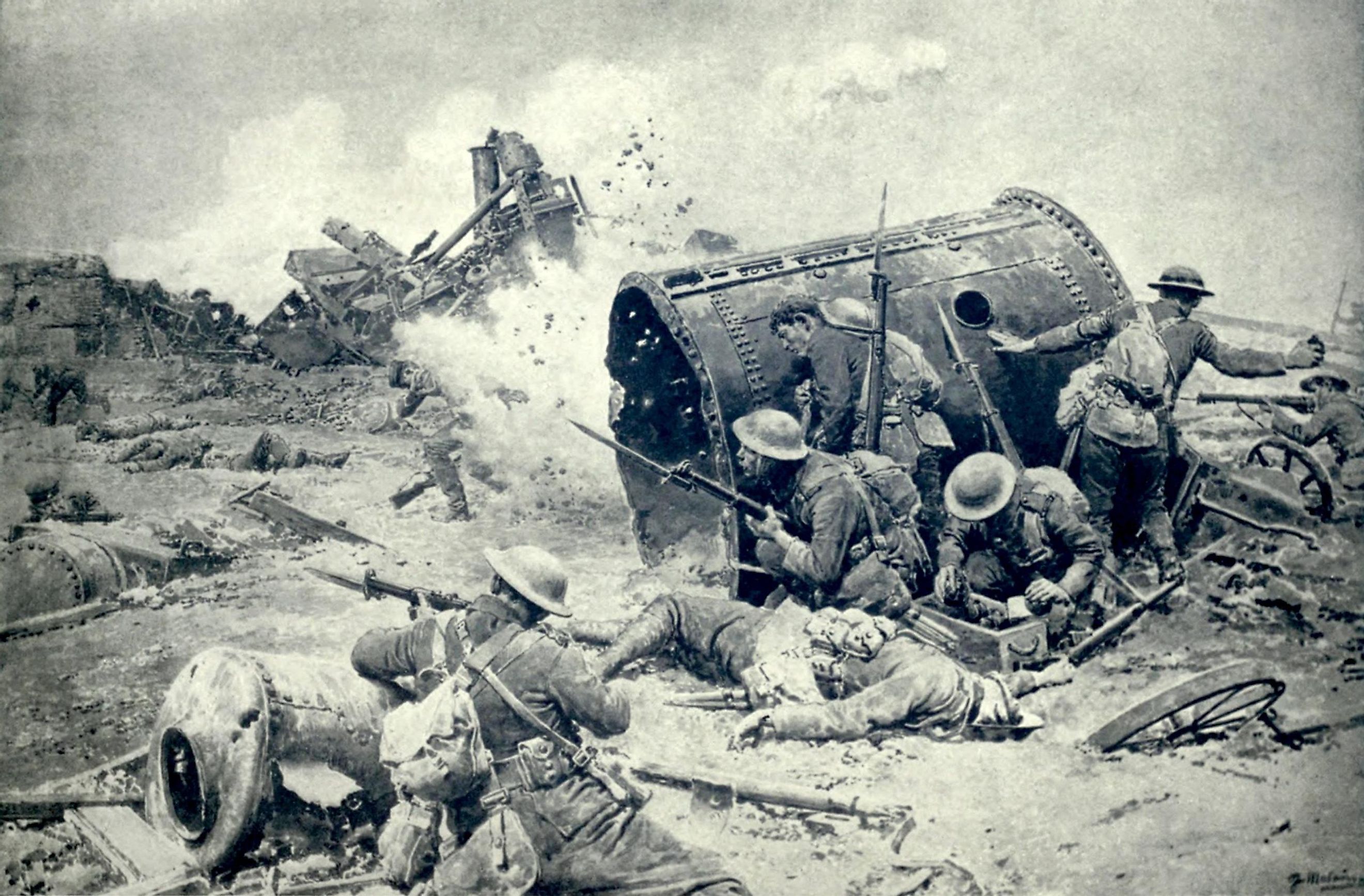
The Main Causes of WW1
World War One (also known as the First World War or the Great War) was arguably the most significant event of the 20th century, leading to geopolitical maps being redrawn, new nations emerging, and communism and fascism rising across Europe. However, the causes are as important as the results, as they reveal key details about the conflict and its place in history. Therefore, investigating the contributing factors that led to the First World War is worthwhile.
The Assassination Of The Archduke Franz Ferdinand

In 1878, following the end of the Russo-Turkish War, the Austro-Hungarian Empire occupied the previously Ottoman-controlled Bosnia-Herzegovina. The Empire then formally annexed Bosnia in 1908, prompting anger from the numerous different ethnic groups in the region. Serbian nationalists were particularly incensed by this incursion. Thus, with the Archduke of Austria-Hungary Franz Ferdinand scheduled to visit the capital of Sarajevo in June 1914, Young Bosnia, a particularly militant Serbian nationalist group, planned an assassination.
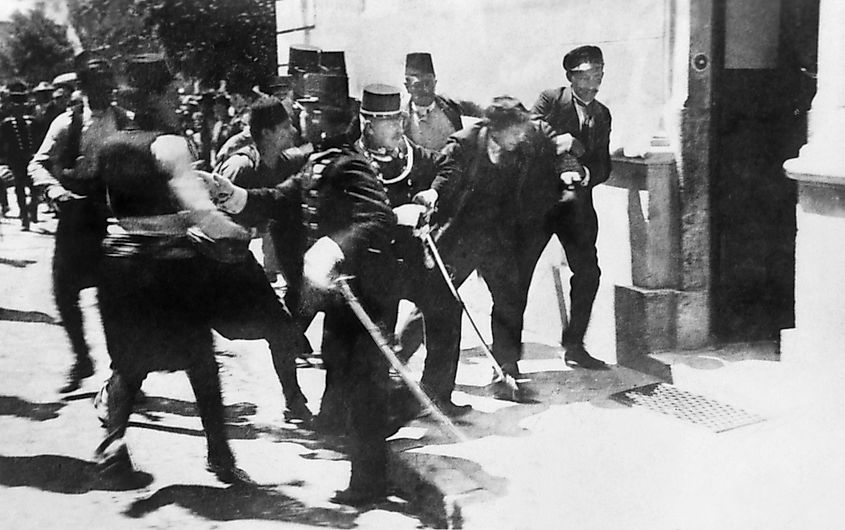
On June 28, at about 10:00 a.m. Nedeljko Čabrinović threw a grenade at the Archduke's motorcade, damaging the vehicles but failing to kill Ferdinand. About an hour later, Gavrilo Princip, after getting lost and seemingly missing his opportunity to carry out the assassination, stumbled across the motorcade. Princip proceeded to shoot Ferdinand and his wife, killing them both and setting off a chain reaction that resulted in Europe going to war.
Understanding the event that started the Great War is crucial. But, comprehending why it was the spark plug is even more important. In other words, how did a conflict that began in the Balkans escalate into a global affair? Analyzing some longer-term factors explains why this occurred.
Alliances
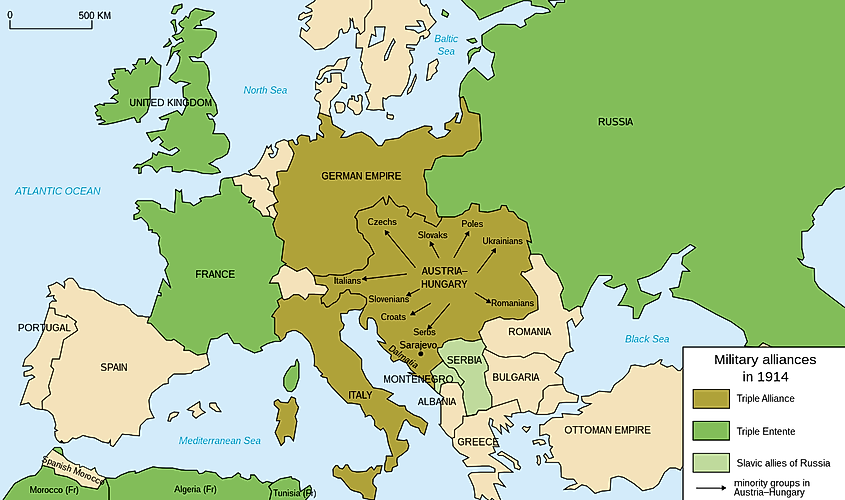
In 1882, motivated by anti-Russian and anti-French sentiments, Germany, Austria-Hungary, and Italy formed the Triple Alliance. This alliance was made so that if one of them was attacked, the other two needed to provide military support. The French and Russians followed this with their own agreement in 1894, evolving into the Triple Entente by 1907--a three-way military alliance between the United Kingdom, France, and Russia.
Despite emerging out of a desire for stability, these alliances contributed to the exact opposite. Indeed, following Archduke Franz Ferdinand's assassination, Austria-Hungary declared war on Serbia. Russia, a Serbian ally, then declared war on Austria-Hungary. Being part of the Triple Alliance, Germany was obligated to go to war with Russia, which then brought in the United Kingdom and France. In short, alliances were largely responsible for a regional conflict snowballing into a general European war, as they made military involvement obligatory if one's ally was attacked.
Militarism
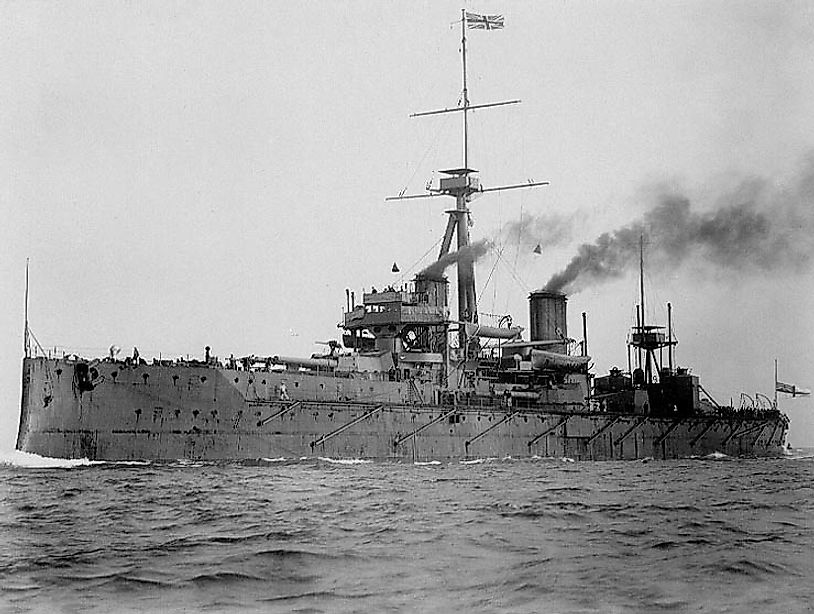
The late 1800s also saw increased militarism. Perhaps the most obvious example of this was the Anglo-German naval arms race. By the 1870s, Britain had the largest navy in Europe. Feeling threatened, Kaiser Wilhelm II began to build up Germany's maritime force. This prompted even more naval investments by the UK, leading to the creation of the Dreadnought--a new ship that far outclassed any others in Europe. It soon became clear that no matter what Germany did, its navy could not match that of the British. Nonetheless, tensions caused by such militarism undeniably contributed to the general fear of a prospective European war. Moreover, these improvements in military technologies ensured that any future conflict would be enormously destructive.
Imperialism/Colonialism
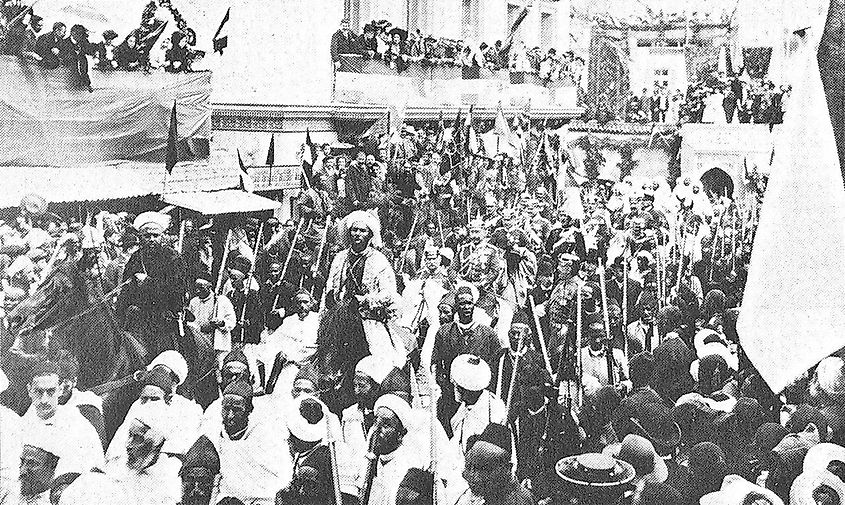
At the 1884 Berlin Conference, Africa was divided between the major European powers, the most notable of which were Britain, France, and Belgium. Despite this diplomacy, difficulties arose. For instance, Germany, not having a particularly strong foothold in Africa, wanted to weaken France's position on the continent. Therefore, on March 31, 1905, Kaiser Wilhelm II visited French-controlled Morocco, touring the city of Tangier and declaring his support for Moroccan independence. Shortly afterward, the Moroccan Sultan rejected a series of French policies. This became known as the First Moroccan Crisis. While Germany agreed to stop interfering in French colonial business following the Algeciras Conference, the crisis resulted in a deepening of alliances, with Austria-Hungary coming to Germany's defense and Britain supporting France. In short, these imperial and colonial affairs increased divisions between the Entente and the Central Powers, contributing to a geopolitical atmosphere that made war possible.
Nationalism
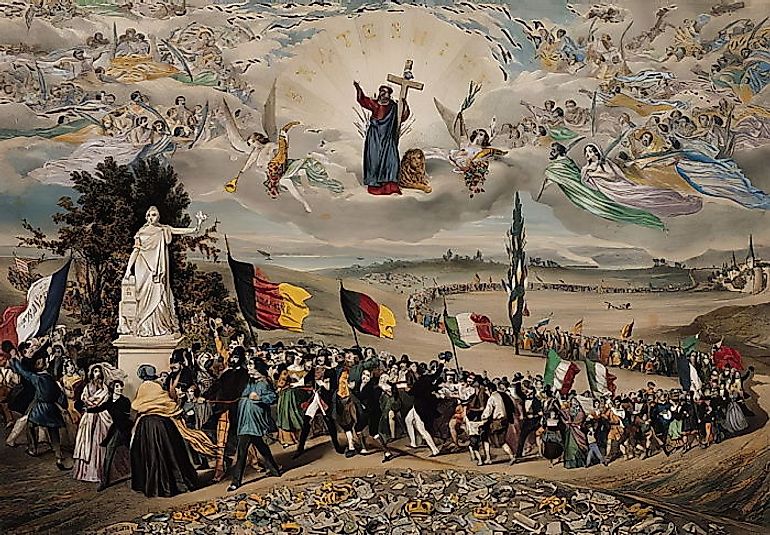
In 1871, Germany and Italy unified, signifying the rise of nationalism across Europe. This change contributed to the perception of politics as a battle between people or races rather than political leaders, posing an existential threat to multiethnic empires like the Austria-Hungary Empire, which comprised Germans, Hungarians, Czechs, Serbians, Croatians, Poles, Ruthenians, and Romanians. Furthermore, no one group in this Empire made up the majority of the population. All this meant that the Empire was a powder keg, with different nationalities vying for power. As demonstrated by Serbian nationalists assassinating Franz Ferdinand, these often violent sentiments directly led to World War I.
The Great War occurred due to a multitude of factors. The most direct cause was the assassination of Austria-Hungary's Archduke on June 28, 1914. However, the deeper roots can be traced to alliances, militarism, imperialism, and nationalism. These elements culminated in one of the deadliest conflicts in world history.











